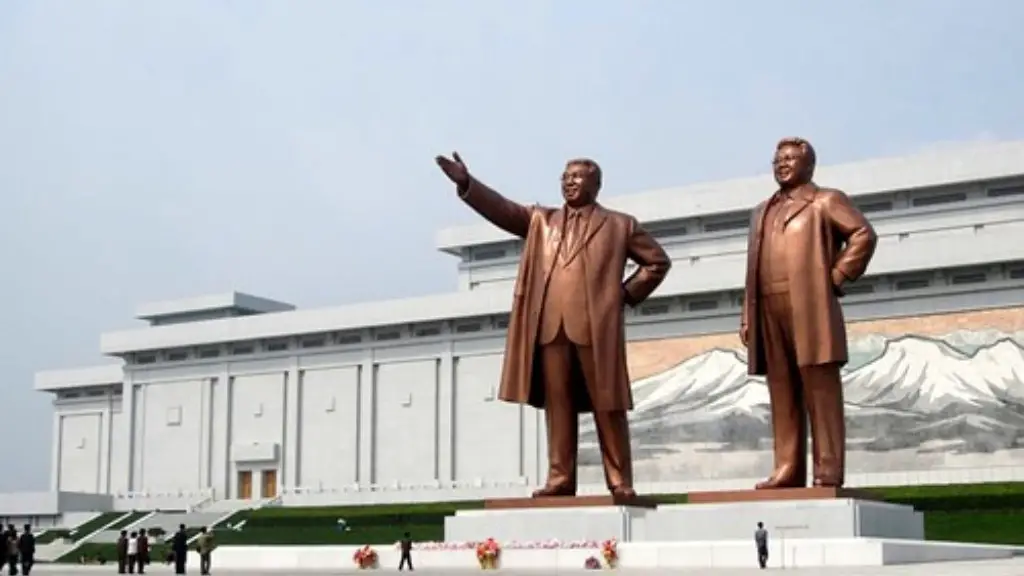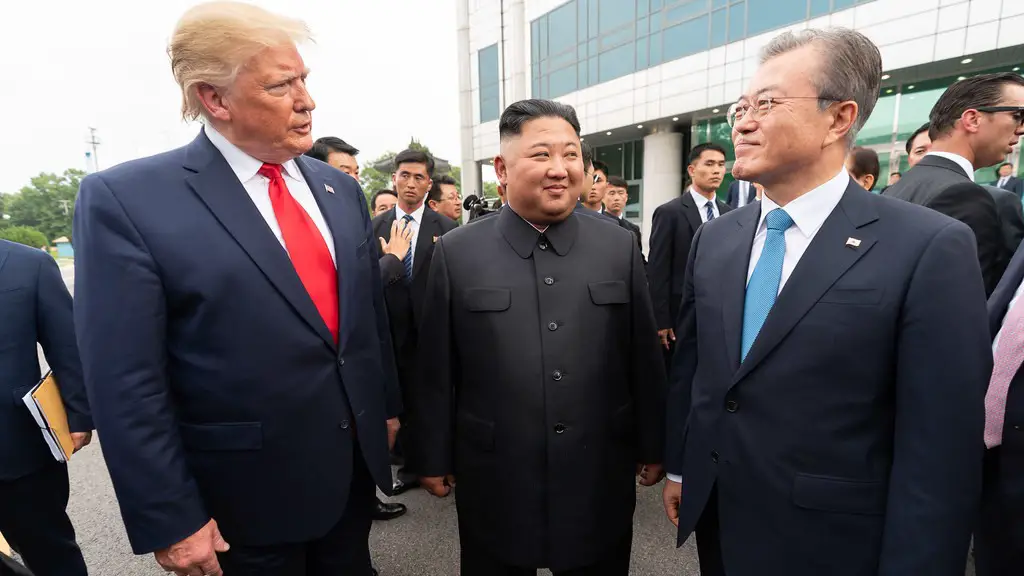The Relationship
China’s relationship with North Korea is complex and intricate. After the Korean War (1950-1953), the Chinese and North Korean governments developed a close relationship, though both countries disagreed on the path to socialist construction.
In the early 1950s, the Korean War had destroyed much of the Korean peninsula and left North Korean infrastructure in ruins. China swiftly moved in to provide help and aid, in the form of labour, reconstruction supplies, and military hardware to give North Korea the capacity to fight against the South and its allies. China’s support of North Korea during the conflict was heavily influenced by their shared communist ideology as well as by China’s fears of U.S. interference in East Asia.
This China-North Korea relationship deepened over the years, and in 1972, the two countries officially signed a mutual aid and cooperation treaty. This treaty broadened the scope of China-North Korea relations, and included the provision of economic aid and military assistance.
In the decades since the signing of the treaty, China has continued to provide North Korea with economic aid, military assistance, and political protection in the form of vetoing UN resolutions against the North Korean government. For example, in 2017, China voted against an independent inquiry into human rights violations in North Korea at the UN Human Rights Council.
What is the Reason Behind China’s Support?
China has offered its support to North Korea for a variety of reasons. Chief among these is the importance of maintaining the stability of their common border, as well as the threat posed by a potential influx of North Korean refugees should conflict break out. Additionally, China is not keen to surrender North Korea as a buffer, to prevent U.S. troops from being stationed too close to the Chinese border.
China’s support for North Korea also includes economic benefits. China is North Korea’s largest trading partner and provides most of the North’s fuel, food, and consumer goods. Additionally, North Korea provides China with cheap and reliable labour, allowing Chinese firms to capitalize on North Korea’s diverse workforce. This is especially useful to China in terms of its growing consumer market which requires cost-effective labour.
The two governments have also developed close political ties. In 2014, China named North Korea as a “friendly neighbouring state” and the two have exchanged numerous high-level visits. This closeness is unlikely to change in the near future as President Xi Jinping and Kim Jong-Un maintain a warm friendship.
The Impact on the Region
China’s support for North Korea has had a major impact on East Asia. This support has enabled North Korea to continue to pursue its provocative actions with actions, such as nuclear weapons and long-range missile tests. China, while not directly involved in these actions, has been criticized for its support, as this has been seen as enabling North Korea’s dangerous policies.
In addition, China’s support for North Korea has complicated regional efforts to resolve the security crisis in the region. For example, China has consistently rejected calls for UN sanctions on North Korea and has instead preferred dialogue and negotiations as a way forward. This has frustrated the US and other regional powers, leading to tension between them and China.
Moreover, China’s support for North Korea has meant that the South Korean government is unable to progress with its plan for greater inter-Korean cooperation. As China provides North Korea with a vital economic lifeline, South Korea has become increasingly cautious in its dealings with the North.
Recent Developments
In recent years, China’s support for North Korea has shifted slightly. While China still provides North Korea with economic and political support, it has become increasingly critical of North Korea’s provocative actions. This shift was particularly evident during North Korea’s nuclear and missile tests in 2016-2017, when China significantly tightened its economic sanctions on North Korea.
Additionally, since the historic summit between Kim Jong-Un and Donald Trump in Singapore in 2018, China has become more engaged in international efforts to ease tensions on the Korean peninsula. This has included providing its support to three-way talks between North Korea, South Korea, and the US, and it has also endorsed the US-led process of denuclearization.
Nevertheless, it is unclear how long China will maintain its support of North Korea. With heightened tensions on the Korean peninsula, China will have to balance its support for North Korea with its other foreign policy priorities.
Military Strategy
China’s support of North Korea also includes military aid. This has enabled North Korea to maintain its large army and defensive weapons. China has supplied North Korea with various weapons, such as aircraft, tanks, and submarines.
It is notable that China has also provided North Korea with technological assistance, particularly in the field of cyber warfare. North Korea’s cyber capabilities have been increasing in sophistication in recent years and experts point to the possibility of a hidden Chinese hand in this. It is unclear why China is aiding North Korea in the development of its cyber capabilities, though it may be part of their larger strategic goal to maintain a balance of power in East Asia.
Furthermore, China has provided military training and joint exercises to North Korean forces. In 2018, Chinese and North Korean forces conducted their first ever joint military exercise, involving tens of thousands of troops.
U.S. Maneuvering
China’s support for North Korea has been a source of great concern for the US government. Washington has attempted to pressure China to reduce its influence on North Korea by imposing economic sanctions and threatening to raise tariffs.
The US has also attempted to use its ally, South Korea, as leverage in its dealings with North Korea. Washington has pushed Seoul to reduce economic ties with North Korea in order to increase the pressure on the North Korean government. However, South Korea’s leadership has refused to do so, due to the possible consequences of triggering conflict on the Korean peninsula.
In response to US pressure, China has maintained its support for North Korea. This has angered the US, which views China’s support as enabling North Korea’s dangerous development and behaviour. As a result, US-China relations have become increasingly strained in recent years.
Economic Interests
China’s support for North Korea also includes economic aid. This has enabled North Korea to rebuild its infrastructure and develop its economy. For example, China has provided North Korea with aid in the form of investment and food relief.
China has also proposed special economic zones in North Korea, which would involve Chinese and North Korean companies working together in resource extraction and infrastructure development. Such projects would be hugely beneficial to the North Korean economy and this, in turn, would be beneficial to China, as it would have access to a huge resource and labour market.
Such economic initiatives would also help to increase ties between the two countries. By deepening economic ties, China could ensure greater influence over North Korean decision making, particularly in terms of security. This could be beneficial to both sides, as it would enable North Korea to gain access to modern technology while giving China greater control over North Korean stability.
Conclusion
China’s support for North Korea is deep and multifaceted. China provides North Korea with economic aid, military assistance, and political protection. This support is driven by a desire to maintain stability on their common border, as well as to benefit from North Korea’s cheap labour and resources.
China’s support for North Korea has enabled the North’s provocative actions, as well as complicated efforts to resolve the security crisis on the Korean peninsula. This has led to tension between China and the US, as well as South Korea.
In recent years, China has become more willing to engage with the US in resolving security issues on the Korean peninsula. However, it is unclear how long China’s support for North Korea will last, as China will have to balance its support with its broader foreign policy objectives.





